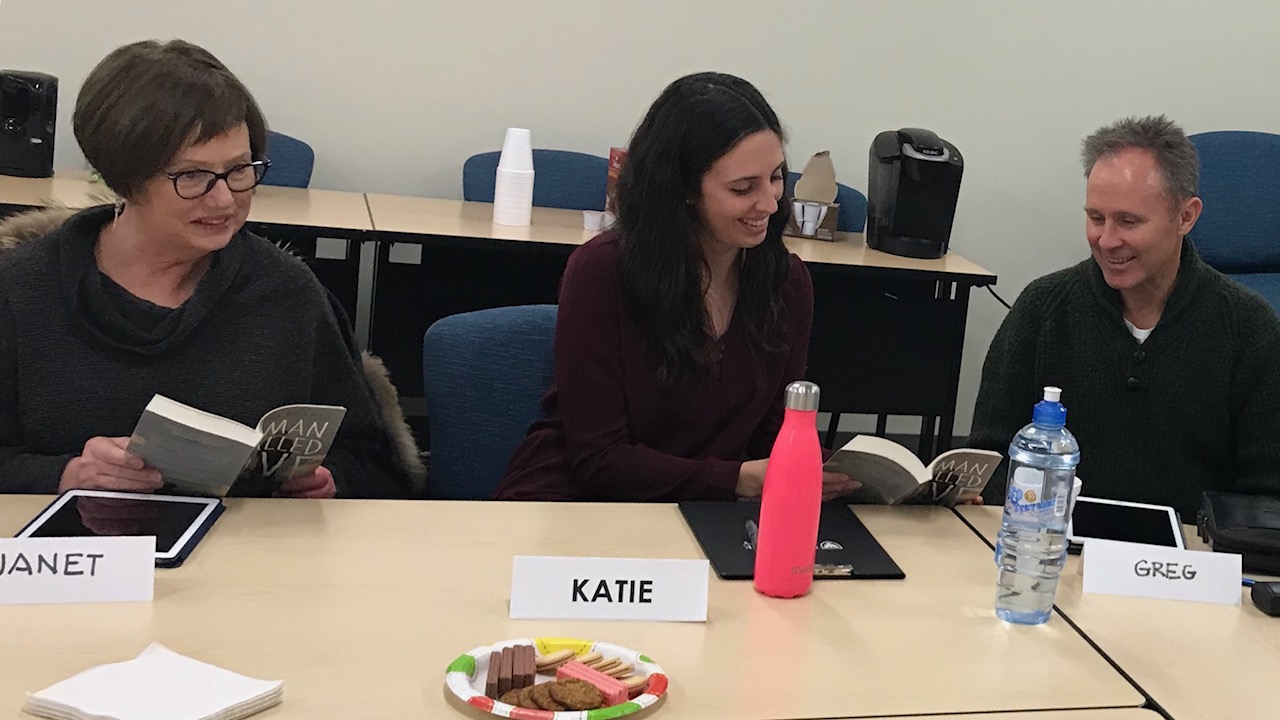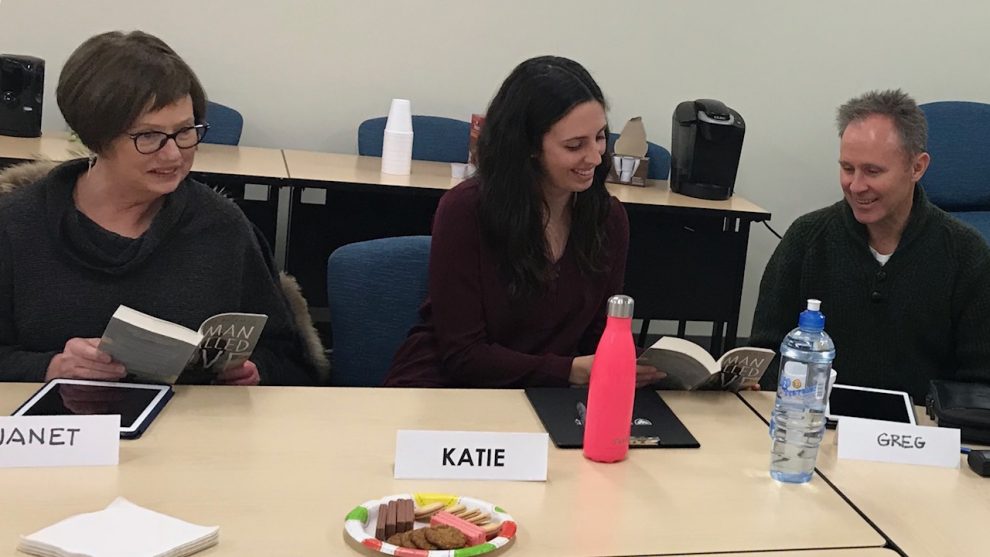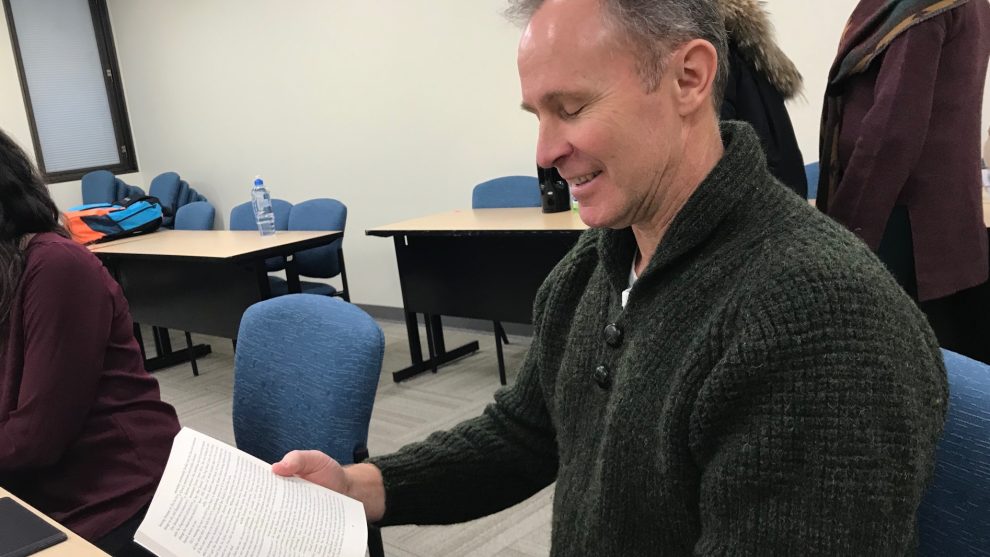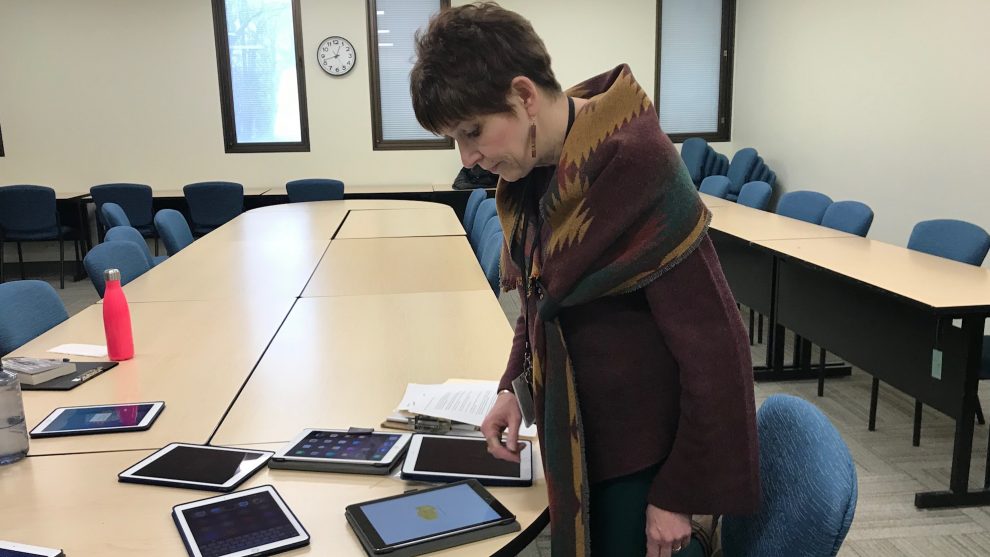Brain injuries
Book club helps people with brain injuries
Aphasia book club members benefit from socialization

caption
Aphasia book club members discuss book
caption
Members of the Aphasia book club discuss one of their book selections.This book club is different. They don’t meet in a restaurant or someone’s living room. They meet at the school of human communications disorders on the second floor of Dalhousie University’s medical school.
This book club is designed to help people with brain damage.

caption
Greg has regained his love of reading because of the book club.Greg was referred to the book club by his speech pathologist.
“I used to read a lot. I missed reading. I enjoy the book club and the discussion helps. My favourite author is John Grisham and I would like to continue reading,” said Greg, who didn’t want his surname used for privacy reasons.
Club members suffer from aphasia, which is when a person loses the ability to understand speech and language due to a traumatic brain injury. The book club was formed in 2006, and modelled after a program in California. The group usually has six members and meets every Tuesday afternoon.
Having the chance to both read and discuss a book helps members practice communication, engagement with others and other socialization skills.

caption
Linda Wozniak prepares a multimedia presentation for the club.Linda Wozniak, director of the aphasia clinic, said the book club is best suited for people who have been discharged from intensive therapy. They are referred as part of their rehabilitation program, as a patient’s recovery can be enhanced through long-term reading and speaking interactions.
“People are looking to keep working on their conversational skills. Aphasia affects reading, and that can be devastating for people,” said Wozniak. “The brain is like a muscle that we need to keep using to keep it strong.”
Wozniak chooses a book which has themes anyone can relate to, including relationships, careers, and aging. She incorporates members’ personal experiences through discussion and multimedia.
Currently, the club is reading A Man Called Ove by Fredrik Backman, which is about a lonely man whose life is turned upside down when a young family moves next door.
“What is the main reason people live to 100 years old?” Wozniak asked the group.
“Interactions and happiness,” Greg replied.
“You are correct,” Wozniak said. “But socialization is the biggest indicator of longevity. Happiness matters, but socialization is the most important.”
Janet, who did not want her surname used for privacy reasons, finds the book club is helping her to recover from a stroke.
“Doctors say recovery is in the first year. It has been 15 years I have been getting better. I couldn’t talk at first; I think you can regress,” she said. “You won’t continuously improve if you don’t keep up your therapy.”
The book club runs for 10 weeks, twice a year.


S
Stan Spak